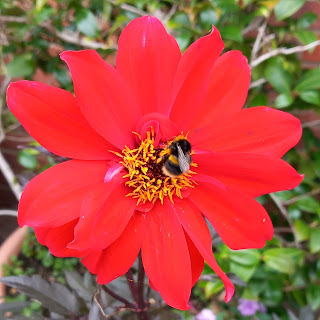Pocklington and District u3a Garden Wildlife Group is led by Tony Flavell, founder of popular Greener Pocklington tree planters but here the focus is on wildlife. The group is very sociable and meets in various members’ gardens. They undertake practical projects and swap ideas about the plants people are using – which plants to choose and where to site them in order to look after garden visitors and encourage bio-diversity.
The group says four main needs for wildlife are food, water, shelter and a place to breed. Everyone can help maintain a healthy eco-system by making a few small changes in their garden – even doing a little can help a lot. How does your garden rate? A variety of plants will encourage different species of birds, animals and insects. Swifts can be encouraged by fitting special boxes onto houses. Hedges and shrubs provide ideal places for birds to nest and a bird bath doesn’t need to be ornate - just somewhere for birds to feel safe to drink. Small animals will need a mini-pond or a low container or dish embedded in the ground. Insects will welcome a bug hotel - it needn’t be an expensive five-star hotel of ornate construction - loose piles of dead wood, and fallen leaves in a quiet shady corner may well do.
An idea which is gaining ground nationally is the concept of green corridors. The Garden Wildlife Group ensure that small animals such as hedgehogs don’t become trapped and can easily move through from one garden to the next to continue their journey. The Group exchanges and disseminates information based on experience, study and observation and can recommend specifics for small gardens such mountain ash to attract blackbirds and buddleia which is a magnet for butterflies and bees. Please be wildlife friendly too.




Comments
Post a Comment